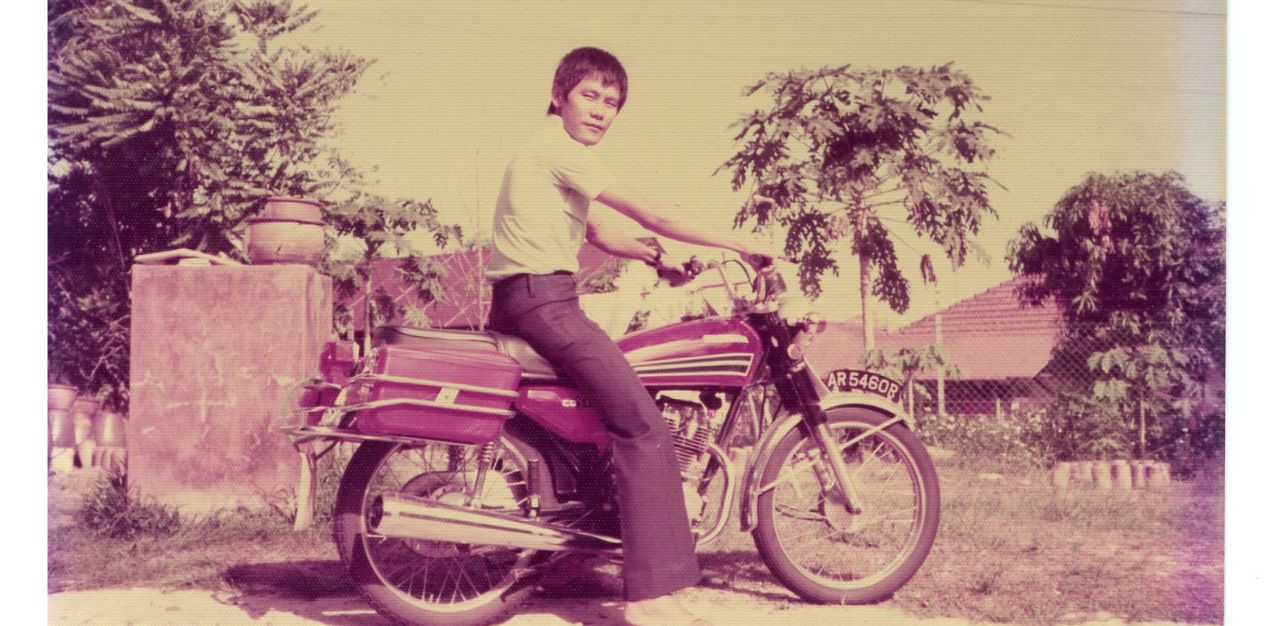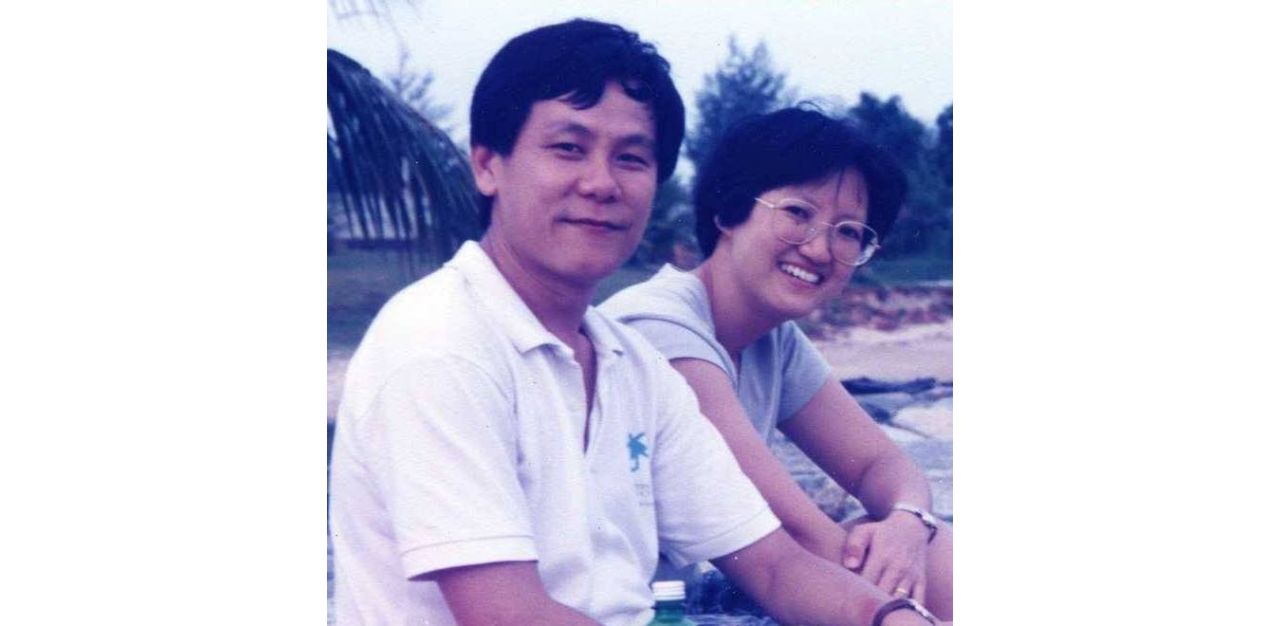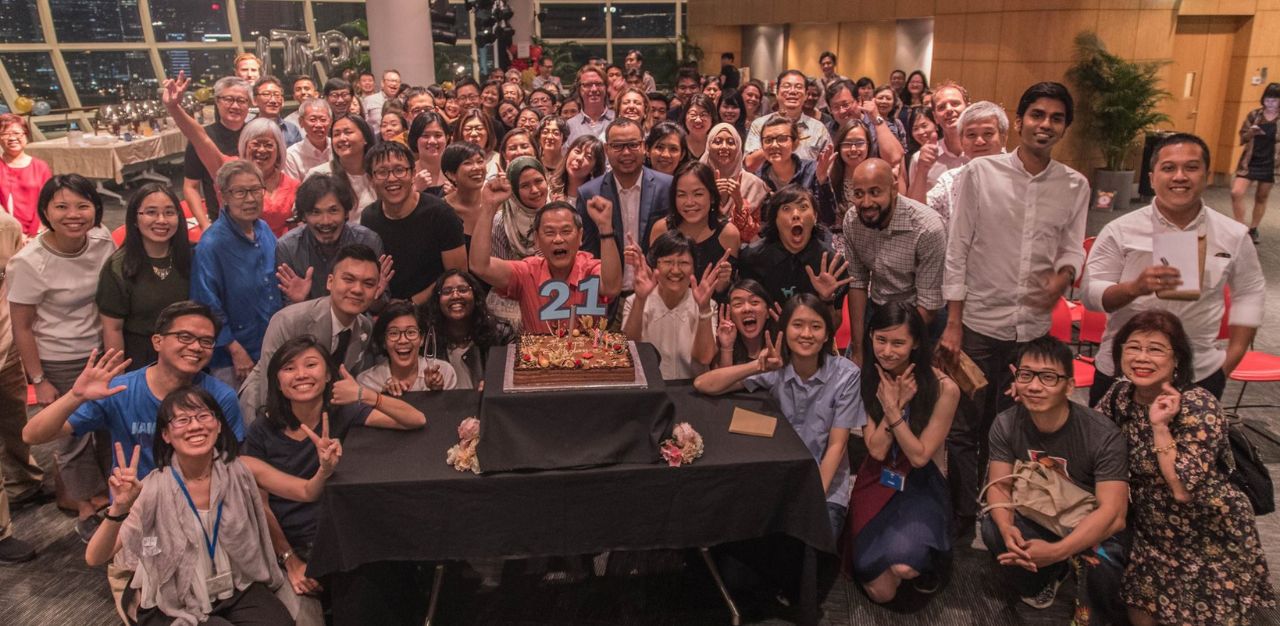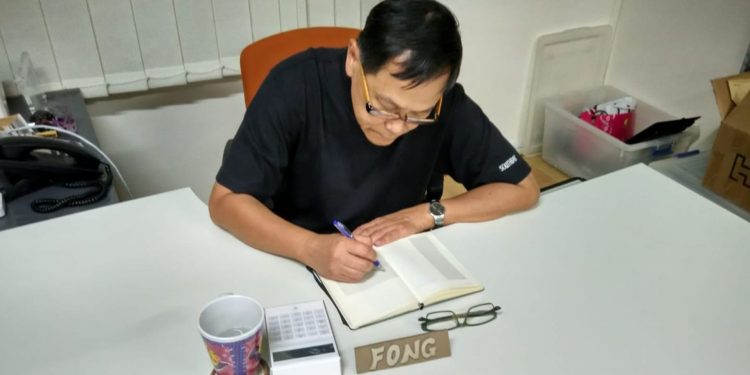In many ways, the freedom that founder of Ethos Books Fong Hoe Fang yearns for in exploration, stories, and ultimately his life of activism and books is often echoed by his desire to ride a motorcycle “into the sunset”.
“I think it’s more of a sense of freedom to be able to just jump on and go anywhere you fancy. It’s a bit like the mind. Sometimes you just want to go here and there, thinking about different things. There’s that itch to travel, to look for new things. And a bike gives me the physical opportunity to do that,” he says.
Fresh from a five-day trip to Penang and Kedah, Mr Fong returns with more stories and an evergreen sense of adventure.
“I went around the place and even visited a 28-year-old engineer who left his job to do eco-farming. He was concerned about food sustainability and security and did an internship. So when I learned about him, I decided to go meet him. You don’t get to hear this kind of story nowadays,” he says.
Mr Fong founded and ran Ethos Books in 1997 as an independent publisher of literature in Singapore. His publishing house has printed numerous books of poetry, fiction, and non-fiction from the likes of poets Cyril Wong and Alfian Sa’at.
Having retired and handed the torch over to his staff, Mr Fong has not taken his hand off the throttle of his bike or the freedom and stories that he wants to explore.
From opening Dakota Dreams, a children bookstore in 2022, to finishing the legacy projects of Ethos Books, and even dabbling with the pen himself, Mr Fong says he is just getting started.
“Retirement is just a word. I consider myself retired from my formal job in publishing at Ethos but you can never stop doing something that you enjoy and you should continue doing that regardless of age,” he says.
TheHomeGround Asia speaks to Mr Fong as he takes us through the highs and lows of publishing, his thoughts on freedom of speech, and the value of literature.

TheHomeGround Asia (THG): Why did you decide to open your children’s bookstore Dakota Dreams this year?
Fong Hoe Fang (FHF): We know of people with too many books at home but they are not willing to trash them. So, when some retail spaces became available at Old Airport Road Food Centre, we decided to sell second hand books there. We let people donate their books and sell them at a rock-bottom price to encourage people to read.
And interestingly we had many people come by. The elderly came and we are organising workshops, teaching origami, and other activities to keep their mind active. Then there are maybe three or four kids who come by regularly just to read the books. We leave the books outside and don’t even record their name. It’s really a joy to see this kid come a half an hour before his lessons start at a tuition place nearby to reads. We have never lost a book.

THG: From publishing books to selling them and now writing. What do you currently have in mind to write about?
FHF: I realise now that the advice I used to give to others to be disciplined (when it comes to writing) should now apply to myself. Writing is not something where you sit and you wait for something to happen. It comes with discipline and experience. I need to set aside time every day to sit down and do nothing but just look at the blank paper and the pen until something hits.
I’m interested in stories of people who helped build Singapore. We once got my mum to write a diary and we published the diary ourselves when we found that there was some interest in it. I’m hoping to rewrite that story in a different way, from a third person’s point of view instead of a first person.
The other thing is that at 68-years-old, I’ve lived an eventful life and have made some observations of society. I would like to put on paper some of these stories from my past and my relationships with people, because I feel they would be useful for my grandchildren to take a look at.
Cavemen told stories which carried through the years by drawing on the walls of the caves. I see books as that. It’ll be more memoirs. Even if it’s fiction, it’ll be based on some old stories.
THG: You have been involved in the publication of many books and articles, which has been the most challenging, fulfilling, and memorable for you?
FHF: Those three words are very interesting. I think challenging not just in literary terms but also about the work itself. Sometimes our work is not always about social or political issues but also about human interest stories.
One of the more challenging books I worked on was something that did not sell very well. But it was challenging because it came from an Indonesian writer who wanted to document his father’s words. He came to me with documents over two-feet high and wanted to put all that into a book in the form of 10 life principles. The title of the book was “Let God owe you”.
The challenging part was his language skills. His first language was Bahasa Indonesia, then Mandarin, and lastly, English. He was not able to express himself well and when you are talking about things like philosophy, the language has to be precise and has meaning. I found great difficulty publishing it because those diaries couldn’t go out as they were. They made no sense. I don’t think anyone read it at all, even after all our editing.
It took us about two years to come up with a book that would sell. Then he didn’t want to sell them. They were more to document his father’s memories. He said that if we sold the books, there would be world peace. I had to be professional about it. Of course, I had my personal thoughts that challenged some of his father’s, and I’m sure other people would challenge them too.

The most fulfilling one was a book I did on Operation Spectrum. Many of the people who were involved in that operation were my friends. For 30 years, they kept quiet about what happened to them because they were so traumatised.
Finally they decided to come up with a book called “1987: Singapore’s Marxist Conspiracy 30 Years On’’. I finally managed to get my friends to write about the experience and exorcise the demons that were in them and that was fulfilling. They really wrote with their hearts on what they were doing at that point in time, and why they felt so maligned by the operation of the state.
The fulfilling part came from getting them to express themselves, to be able to give a voice to this group of people who were very passionate about the work they were doing, which was community and social work; and who were passionate about the causes they were fighting for. They were shut down by a state operation because the state could not accept their narrative.
The most memorable was a book that was published and distributed in South Africa. The title of the book was ‘Man/born/free’ and edited by Gwee Li Sui, a well-known editor, writer, and academic in his own right in Singapore.
We were going to South Africa on a trip to promote Singapore and the organiser of the trip told me to do a book to show the ethos of Singapore. Since we were going to the land of Nelson Mandela, my brief to my editor was the stories should be in line with what Nelson Mandela stood and fought for. Gwee managed to find writings and stories, which had not been published or had been published but in unknown journals. He even found poems, stories and included them in a book. I was blown away by how he managed to do so.
The editor did a really good job and I felt that the book really stood out for me because I was not ashamed to bring it to South Africa.
THG: Madam Kwa Geok Choo was known for her quote about being “two steps behind” Mr Lee Kuan Yew. How instrumental has your wife Chan Wai Han, whom you’ve worked with for over 40 years, been in your life and career?
FHF: I would say super instrumental. She’s really a force of nature all on her own. I think without her I would not be the man that I am today. She has supported me in all my dreams and visions. You can’t imagine but we left our jobs at the height of our careers to go into publishing with no salary and two young kids in tow.

Without my wife, I don’t think I would have been able to do half the things that I did because you need that kind of support. We sound each other off. Sometimes I would start a fire and she has to keep it from burning everything down.
THG: You spoke in an IPS-SAM spotlight in 2018 about how all publishers should work to expand the number of literary readers and reduce the reliance on government grants. What is the value you see in reading and how can publishers work towards that goal?
FHF: I think it’s going to be a tough but there are some battles you just have to fight. You fight and leave others to continue because it’s going to take a long time. Singapore did a disservice to its own people when the Education Ministry made literature an elective rather than a compulsory subject in school.
I think literature, reading, and books bring a certain perspective to the soul of a nation. When you read, you get a glimpse into the lived experiences of others. … We recognise that the nation needs a soul and if you want to be a nation, there has to be togetherness, unity, and shared experiences to build it. Otherwise it will be every man for himself. This is where publishers need to continue to be able to publish more books that speak to our soul. Even in the process of speaking will it only begin to fine tune and craft what that soul ought to be.
THG: In August, author Salmann Rushdie was stabbed while giving a public lecture. In the same month, the Government in Singapore discussed extending some laws to safeguard against “cancel culture”. Considering the climate of today, along with the tools at our disposal, what advice do you have for any storytellers out there to navigate the industry?
FHF: It’s always been there. It’s just that we never visited the coffee shops where these things happen. Social media has served to make it come to the fore and everybody gets angry. So, we need to be able to balance this out and speak about issues in a civil manner, which many of us have not learned to do. … All you need is for that one idiot coming out to incite and suddenly all guns ablaze.
It’s really quite frightening to see this happening because we have not learned how to deal with disagreements in an agreeable way. That’s how this cancel culture all comes about. I would say this is just human nature.

THG: In that case, how can we go about “learning to disagree” in the framework and environment of today?
FHF: I think that the internet is neutral. It’s like a gun. A gun is dangerous only when a man holds it with the intention to do harm. So the Internet is a bit like that. I think when it first started out, the internet gave marginalised people a very powerful weapon.
There’s the example of the National Kidney Foundation scandal and the petitions it generated. These were the early days of the internet. Now everybody wants to utilise that power. There’s also the example of the false headline of Dr Toh Chin Chye. We always need to be very careful about believing what we read.
THG: What books or writings would you recommend for people generally and as Singaporeans?
FHF: There are many books but one that always comes to mind is Animal Farm. It really is a story about a society fighting, striving for an ideal in a time and place when the oppressed become the oppressors.
This is very real in the world today. Whether in America, China, Singapore, or Malaysia. You can start off with a beautiful ideal but if you do not control it, you’ll let power, money, or whatever come over you. This is the sad story of mankind. All of us, including myself, need to fight this instinct.
I would also love for Singaporeans to read more about the history of how we came about. The formation of Singapore but not as a nostalgia; not as wishing for things that have passed but more as lessons for the future.
There’s no singular book that I would recommend for that but that whole genre of historical books of Singapore’s past. These books are by ex-politicians, civil servants, and whoever documented their journeys. You may agree or disagree with them but what’s more important is to know about them, understand where they are coming from, what they are doing, how it could have been different, and what lessons there are to learn.
RELATED: In Conversation With: Adele Lau, founder of animal-assisted interactions SG
Join the conversations on TheHomeGround Asia’s Facebook and Instagram, and get the latest updates via Telegram.














